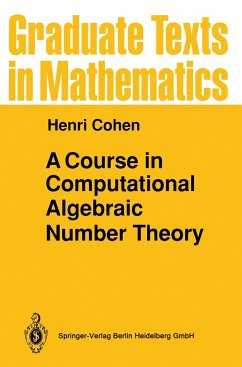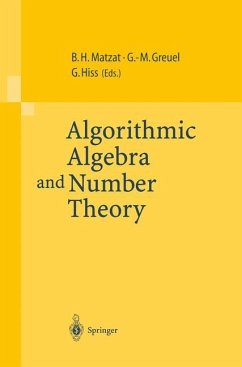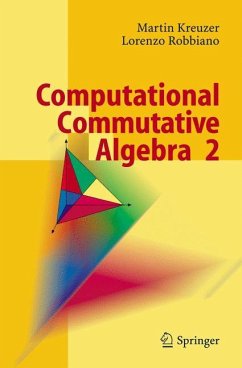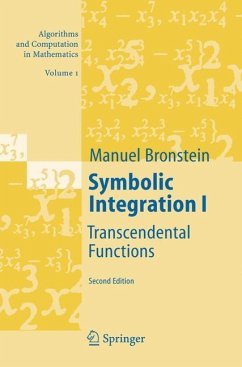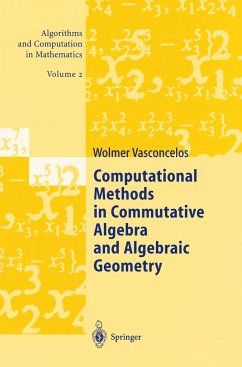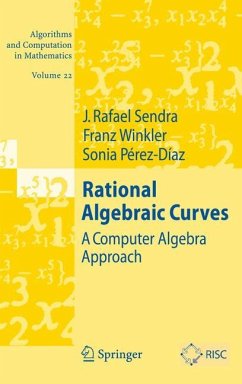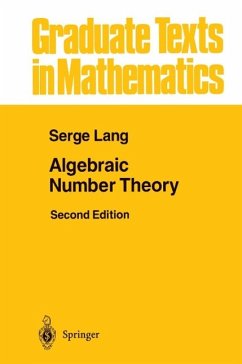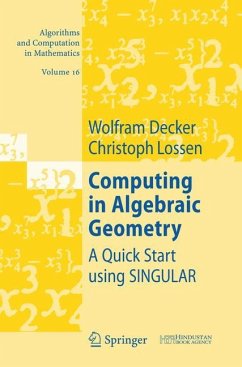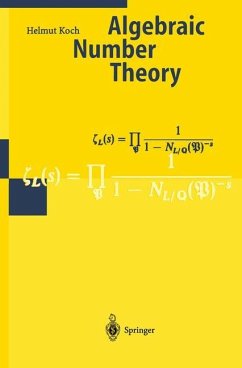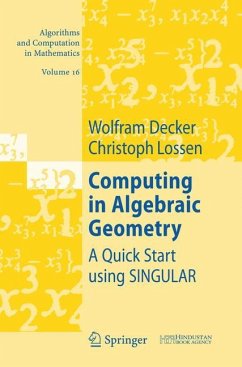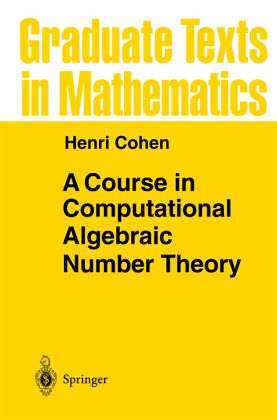
A Course in Computational Algebraic Number Theory
Versandkostenfrei!
Versandfertig in 1-2 Wochen
60,99 €
inkl. MwSt.
Weitere Ausgaben:

PAYBACK Punkte
30 °P sammeln!
A description of 148 algorithms fundamental to number-theoretic computations, in particular for computations related to algebraic number theory, elliptic curves, primality testing and factoring. The first seven chapters guide readers to the heart of current research in computational algebraic number theory, including recent algorithms for computing class groups and units, as well as elliptic curve computations, while the last three chapters survey factoring and primality testing methods, including a detailed description of the number field sieve algorithm. The whole is rounded off with a description of available computer packages and some useful tables, backed by numerous exercises. Written by an authority in the field, and one with great practical and teaching experience, this is certain to become the standard and indispensable reference on the subject.
With the advent of powerful computing tools and numerous advances in math ematics, computer science and cryptography, algorithmic number theory has become an important subject in its own right. Both external and internal pressures gave a powerful impetus to the development of more powerful al gorithms. These in turn led to a large number of spectacular breakthroughs. To mention but a few, the LLL algorithm which has a wide range of appli cations, including real world applications to integer programming, primality testing and factoring algorithms, sub-exponential class group and regulator algorithms, etc ... Several books exist which treat parts of this subject. (It is essentially impossible for an author to keep up with the rapid pace of progress in all areas of this subject.) Each book emphasizes a different area, corresponding to the author's tastes and interests. The most famous, but unfortunately the oldest, is Knuth's Art of Computer Programming, especially Chapter 4. The present book has two goals. First, to give a reasonably comprehensive introductory course in computational number theory. In particular, although we study some subjects in great detail, others are only mentioned, but with suitable pointers to the literature. Hence, we hope that this book can serve as a first course on the subject. A natural sequel would be to study more specialized subjects in the existing literature.





